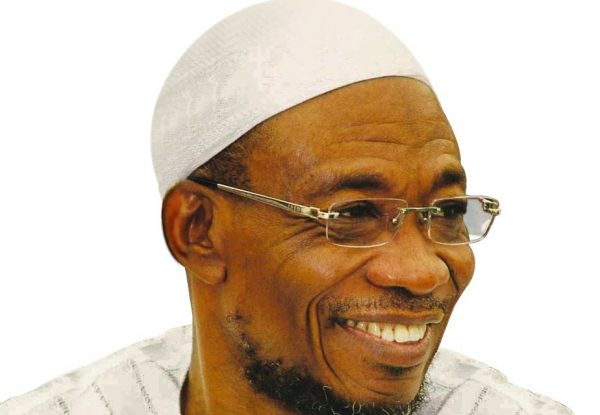The Governor of Osun State, Ogbeni Rauf Aregbesola, on Tuesday evening set up a six-man judicial commission of inquiry headed by Justice Olajide Falola to look into the communal clash between Ipetumodu and Ashipa communities in Ife North Local Government Area of the state.
Other members of the Judicial Commission are Adelowo Adewumi, Mufutau Oluwadare, Architect Elijah Ojo, Charles Chioma of the Osun Command of the Nigeria Police and Taofeek Komolafe as the panel’s secretary.
The governor, in a speech titled: “Never Again,” while inaugurating the panel, charged it to inquire into all the circumstances that occasioned the disturbance of public peace which occurred on January 13, 2015 and in subsequent days.
The communities of Ipetumodu and Ashipa had engaged in an orgy of violence and were on the path of mutually assured destruction before the intervention of law enforcement agencies, the state government and other leaders.
Aregbesola also urged the commission to include as its terms of reference the investigation and determination of the identity of the perpetrators and sponsors of the communal clash and disturbance in the two communities.
The governor also asked the panel to recommend appropriate administrative, civil or criminal action to be taken against person(s) or group(s) found to be involved in the destruction of properties and attacks on persons.
He noted that human beings will lose their claim to being civilised if at this age they still prefer raw and sadistic actions to dialogues in the settlements of disputes among themselves.
According to Aregbesola: “The commission of inquiry is expected to make appropriate recommendations and suggestions to the state government towards the prevention of future occurrence; To recommend appropriate monetary sum as compensation for any damage or injuries that might have been suffered as a result of the communal clash or disturbance.
“The commission shall have powers to take memoranda, papers and submissions from members of the public. They can also visit the scene and receive contributions, submissions or papers from traditional rulers and institutions in the area.
“They can take oral evidence and exercise other powers within the ambit of the law to attain success in the present assignment.”
Aregbesola pointed out that disputes are bound to happen in every human community, noting that it is the logical fallout of human civilisation that institutions of government are created for people not to take laws into their hands.
He said: “Land is one of the issues that we are so passionate about especially in non-industrialised societies. But this is false consciousness. We work hard and some try to grab by force in order to own pieces of land.
“Wars are also fought for the same reason. But in the final analysis, we will all die and be buried in the bowels of the earth. We don’t own the land but the land owns us all in the final analysis.”
Aregbesola charged the commission to, as a matter of urgency, look into the market days of the two communities, stating that the panels should separate the days of markets after wide consultations.
The governor, who condemned the clash, noted that the cost of rebuilding would cost government what it could have used in providing education, free meals for school children, good roads and care for the aged.
Aregbesola charged the commission to submit its report within six weeks of its inauguration, urging members of the commission to undertake the assignment with all seriousness and the fear of God.
In his response, Falola assured the governor that the inquiry will discharge its duties without fear or favour.


